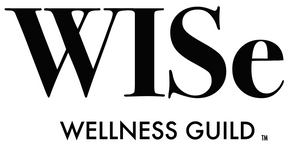
Top 3 Questions I Receive as a Professional Money Manager

Charnella Grossman, Vice President, Portfolio Management at Fifth Third Private Bank
1. What happened to the stock market this year? Why?
The last 6 months have been painful for investors. It was the worst first half for stocks in 52 years as measured by the S&P 500 Index, the worst for bonds since the mid-1970s as measured by the Bloomberg U.S. Aggregate Bond Index and the worst first half for Treasury bills (short-term government securities) since 1788. Many people blame inflation, driven by high gas prices. Others blame the Federal Reserve’s aggressive plan to curb this inflation by raising interest rates. These factors have been exacerbated by numerous geopolitical concerns: COVID-19 continues to wreak havoc internationally, global supply chains remain unreliable, and Russia's war with Ukraine continues.2. Are we in a recession?
Most likely – but this is not your typical recession. Despite two consecutive quarters of decline in GDP (the official textbook definition of a recession), we are all continuing to spend. Even taking inflation into account, American consumers spent about 1% more on everything in the second quarter of 2022. There is one big difference: we are no longer spending on goods, but rather on services. Compared to last summer, gas and vacations are the most common categories of new spending. We cut back on buying appliances, furniture, and cars by ~4%, but we are continuing to spend on the things we missed doing early in the pandemic. As we enter the back half of the year, it will be interesting to watch if consumer spending declines. With the Fed still raising interest rates, continued inflation, supply chain concerns, and a global conflict still underway, this level of spending may be tough to sustain for the American consumer.3. Will the market improve in the next 6 months?
I think so – it’s hard to get a clear answer in the throes of rising interest rates, high levels of inflation, 6% mortgages, an ongoing war in Europe, and looming midterm elections that should consume Washington for the rest of the year.
However, the U.S. economy has been surprisingly strong based on three factors:
1. A strong labor market: As of the most recent Bureau of Labor Statistics report, the U.S. has ~11 million job openings and ~6 million job seekers. A labor shortage with millions of job seekers ultimately means that most of those job hunters will actually get jobs – this will improve consumer buying power. Even if an economic slowdown causes employers to withdraw some of those 11.3 million postings, job growth should continue.
2. An empowered consumer: Consumers and businesses are sitting on cash balances that are roughly $2 trillion above pre-Pandemic levels. Consumers still have "firepower" and their accumulated savings will filter back into the economy as either consumption or investment.
3. Momentum: Even when uncertainties rise, economies rarely stop suddenly, (the Pandemic decline was the exception, not the rule). The U.S. economy has considerable momentum, with a highly profitable business sector that appears to be ready to spend. Corporate investment typically leads to more jobs and the upward trend continues. Together, these factors bolster the U.S. economy and result in healthy market returns.
Learn more about Of Note here, a wealth network for women, powered by Fifth Third Private Bank, and how they can support your financial needs.
For further questions, you can chat with Charnella on LinkedIn here
Header Image from Pexels by Karolina Grabowska

Leave a comment